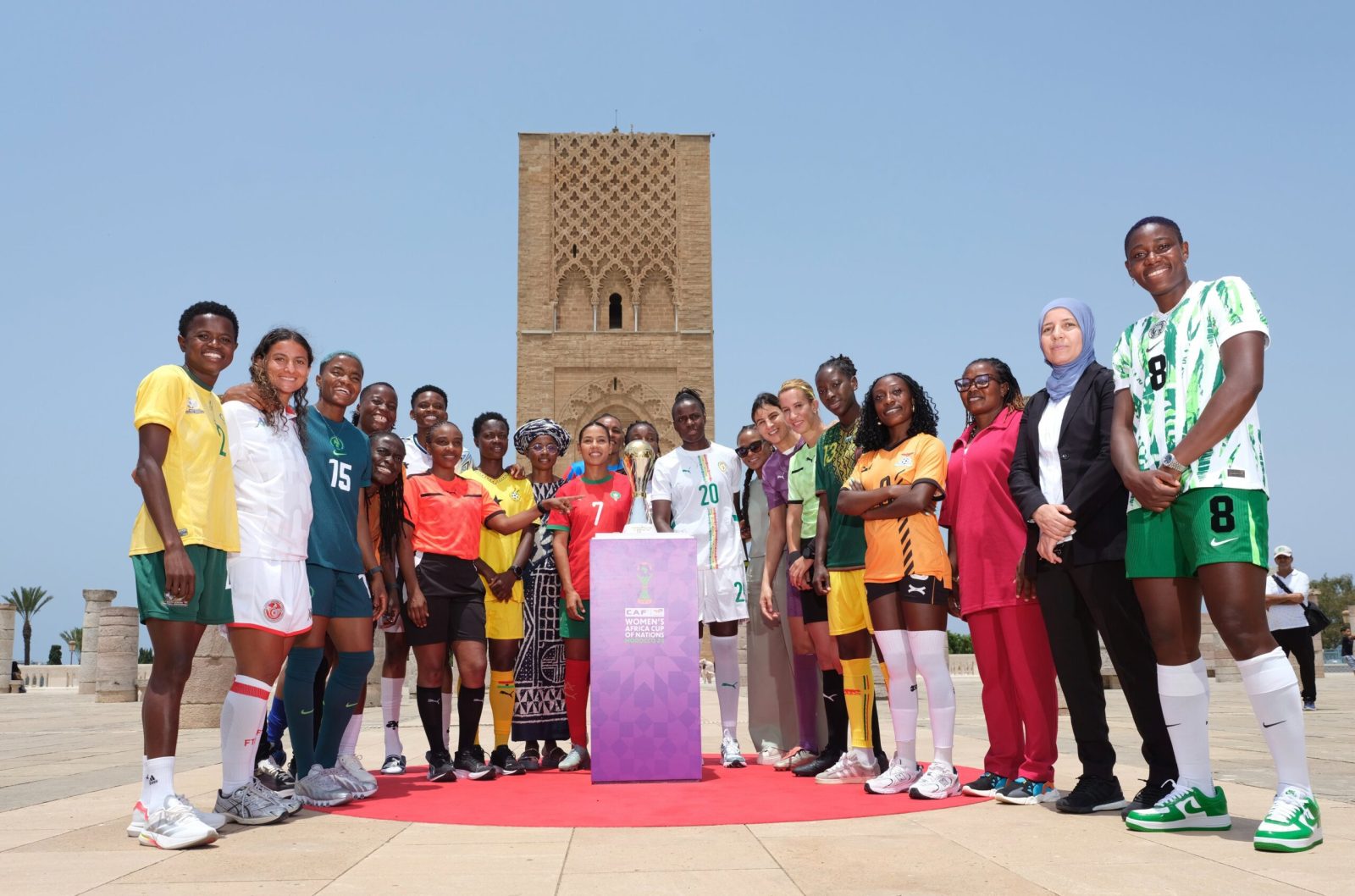Beyond regular live TV, there should have been multiple streaming options showcasing Africa’s premier women’s football tournament. The lack of it isn’t just an oversight; it’s unacceptable.
By Tuka Letura
The marketing of any sports tournament, whether global or regional, hinges first and foremost on one thing: visibility. You cannot grow a fanbase, generate enthusiasm, or spark long-term engagement when people cannot watch the games with ease. Football is a sport that thrives on the eyes it draws, the emotions it stirs, and the communities it gathers.
Yet, here we are in 2025, and the Women’s Africa Cup of Nations (WAFCON) is in full throttle, but in near silence like an electric vehicle or even worse, a mechanical one whose engine is blown—not for a lack of excitement, but due to glaring gaps in visibility.
After multiple delays, WAFCON 2024 finally kicked off on July 5, 2025, with host nation, Morocco, taking on Zambia in the tournament opener. That match delivered immediate drama, as Morocco fell short to an impressive Zambian side. On the pitch, the action has begun in earnest. But off the pitch, many are left asking a simple but troubling question: where can we watch it?

Across social media and fan forums, there has been a rising chorus of frustration. Fans from within the continent and beyond are struggling to find where and how to watch the matches. Even within Morocco, the host nation, coverage has been spotty at best.
CAF has touted its extensive broadcast partnerships for the 2024 Women’s Africa Cup of Nations, citing big names like beIN Sport, CANAL+, SuperSport, and over 30 Free-to-Air stations across Africa, as evidence of its commitment to visibility. Yet, viewers in regions like the UK, parts of Europe, Asia and Canada are still struggling to access the tournament.
If the goal is to make African women’s football “visible, inspiring and accessible to everyone, everywhere”, then why does that visibility seem limited to a patchwork of regions, while major international markets with large African diaspora remain underserved or completely unlisted?
The only accessible streaming platform, which isn’t easily available to begin with, is South Africa’s SABC+, a service with streaming rights primarily limited to South African residents. As a result, it effectively cuts out the rest of the world. In 2025, when the global football ecosystem has fully embraced online streaming, mobile access, and multichannel distribution, this situation is not just inconvenient, it’s indefensible.
Beyond regular live TV, there should have been multiple streaming options showcasing Africa’s premier women’s football tournament. The lack of it isn’t just an oversight; it’s unacceptable.
The Confederation of African Football (CAF) has been slow to communicate a comprehensive broadcast strategy. Many regional broadcasters remain silent, and streaming options are limited or non-existent. For a tournament that should be Africa’s premier celebration of women’s football, this lack of visibility threatens the very legitimacy and growth it aims to promote.
This situation begs a bigger question: What is CAF’s actual plan for the women’s game on the continent?

WAFCON has long struggled for proper footing. The tournament has been plagued by frequent postponements, unclear hosting decisions, uncertain prize structures, and logistical mishaps. It was initially scheduled for 2024 but was pushed into 2025 due to internal CAF delays. When it finally did arrive, the least fans expected was a clear, well-executed broadcasting plan.
Instead, a golden opportunity is being squandered. This year’s tournament features some of the best African talent currently lighting up leagues across Europe, players who have made their mark at the UEFA Women’s Champions League, the English Women’s Super League, and other elite competitions. WAFCON should be a stage to showcase them to the continent and the world.
It has, due to recent circumstances, almost become an “underground” tournament, only visible to those with VPNs, obscure streaming links, or insider knowledge. For many, the competition has remained limited to an obscure few with access to specific live TV channels, while the majority, especially younger Africans, are left out.
Africa has a rapidly growing youth population that consumes content primarily through streaming platforms, along with traditional television. Add to that the millions in the diaspora, living in places like the UK, Canada, and parts of Europe, who, due to time zone differences, demanding work schedules, or restricted TV rights in their countries, would naturally turn to online streaming as their primary means of access. But for now, instead of enjoying seamless digital access, viewers are forced to jump through hoops, using VPNs, digging up backdoor links, or relying on unofficial streams, just to watch the continent’s premier women’s football tournament.
Broadcast visibility is not an accessory to football development, it is the foundation. When people can’t see the game, they don’t know the players. When they don’t know the players, they don’t form attachments. When they don’t form attachments, they don’t support enough, buy merch, attend games, or really have skin in the game. And when that cycle breaks, investment dries up.

CAF’s failure to prioritise and expand broadcasting access doesn’t just hurt this tournament, it damages the trajectory of women’s football across Africa.
Let’s be clear: WAFCON is not just another tournament. It is a statement of intent about how Africa views women’s sport. It’s a chance to correct decades of underrepresentation. It’s an avenue to inspire millions of young girls across the continent who dream of playing professionally. It’s a platform to celebrate excellence and inspire progress. But that platform must be visible.
These are not revolutionary steps, they are the bare minimum expectations in a digital-first era. Just across the road, Europe is hosting the Women’s Euros and it’s the complete opposite in terms of broadcasting to what is being offered by CAF and the partnership it has in place. Visibility must be non-negotiable.
Because if no one can watch, no one can care—and if no one cares, then what’s the point?
Tuka Letura is an experienced sports writer with over six years of experience in the craft. He uses data and statistics to provide analysis and commentary. From regional to worldwide competitions, he has covered a wide range of sports-related events and topics. He is devoted to sharing his enthusiasm for sports with his audience and engaging them with interesting anecdotes and viewpoints.



